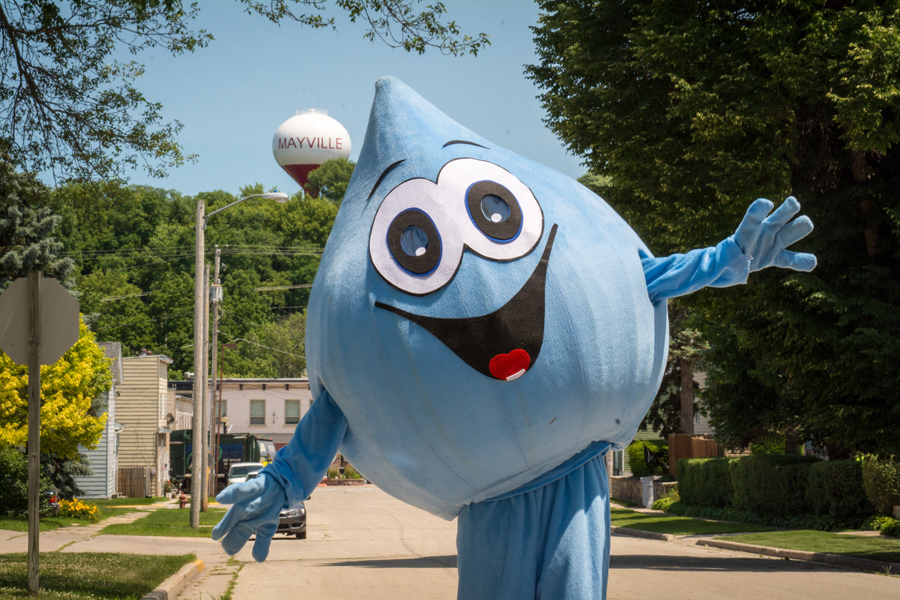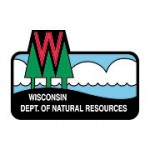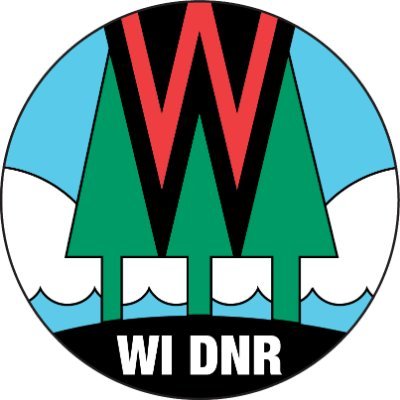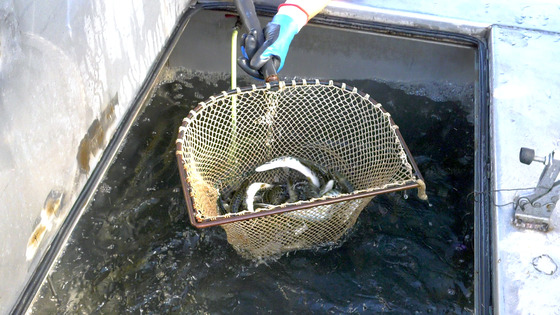Groundwater Coordinating Council Releases Recommendations To Improve Groundwater Quality And Quantity In Wisconsin

The 2020 Wisconsin Groundwater Coordinating Council’s report to the legislature is now available for review. / Photo Credit: Wisconsin DNR
MADISON, Wis. – The Wisconsin Groundwater Coordinating Council shared key recommendations for protecting and preserving groundwater resources with the Wisconsin legislature in its August 2020 annual report.
Nearly three-quarters of Wisconsin residents rely on groundwater as the primary source for their drinking water. Wisconsin also relies on groundwater to irrigate crops, water cattle and process a wide variety of foods, as well as feed trout streams and spring-fed lakes — all of which are vital to our state economy.
New challenges and new ideas continue to warrant the GCC’s collaborative approach.
“While Gov. Tony Evers brought needed attention by declaring 2019 the Year of Clean Drinking Water, the work continues to address Wisconsinites concerns about the safety of their drinking water,” said Bruce Rheineck, groundwater section chief for the Department of Natural Resources.
Three of the key recommendations found in the report address some of the most prevalent issues in Wisconsin water quality, including:
- Protecting groundwater from nitrate and other agricultural contaminants;
- Addressing public health and environmental concerns regarding perfluoroalkyl and polyfluoroalkyl (PFAS) chemicals; and
- Evaluating groundwater for viruses and other microbial pathogens.
Areas of the state with a greater density of agriculture generally have a higher frequency of nitrate and pesticide detection, especially in areas of the state with vulnerable geology and soils. The report recommends supporting research assessing conservation plans that identify and encourage the use of alternate cropping and nutrient management practices that minimize agricultural nitrogen losses to groundwater. The Council also recommends developing an outreach program to encourage full implementation of these plans.
Perfluoroalkyl and polyfluoroalkyl (PFAS) chemicals have been detected in drinking water and groundwater in Wisconsin. The report highlights the water quality challenges posed by PFAS. The Council recommends establishing PFAS groundwater enforcement standards and continuing to identify PFAS sources and their potential impacts to groundwater and the environment. The GCC also supports the Wisconsin PFAS Action Council (WisPAC) in developing and coordinating statewide initiatives around PFAS.
The 2020 report also highlights the need for increased support of applied groundwater research to protect and preserve our valuable groundwater resources. Wisconsin is recognized as a national leader in groundwater research largely due to the well-established joint solicitation process coordinated by the GCC. Increased funding could be used to address emerging groundwater contaminant concerns such as PFAS.
The Groundwater Coordinating Council was formed in 1984 to help state agencies coordinate activities and exchange information on groundwater. Today, the council and its subcommittees regularly bring together staff from more than ten different agencies, institutions and organizations to communicate and work together on a variety of research, monitoring, data management, education and planning issues. These activities increase coordination between agencies, to avoid duplication, create efficiencies and benefit Wisconsin’s taxpayers.
For more information, visit dnr.wi.gov and search “Groundwater Coordinating Council.”
NOTE: This press release was submitted to Urban Milwaukee and was not written by an Urban Milwaukee writer. While it is believed to be reliable, Urban Milwaukee does not guarantee its accuracy or completeness.
More about the PFAS Problem
- Environmental Groups, Community Advocates Push for PFAS Deal - Henry Redman - Jul 14th, 2025
- Environmental Advocates Hail Wisconsin Supreme Court Decision in Evers v Marklein - Midwest Environmental Advocates - Jul 8th, 2025
- Wisconsin Supreme Court Backs State Regulators of PFAS Pollution - Danielle Kaeding and Rich Kremer - Jun 24th, 2025
- Gov. Evers Releases Statement on Wisconsin Supreme Court Decision in WMC Inc v. DNR - Gov. Tony Evers - Jun 24th, 2025
- Rep. Shelia Stubbs Elected Great Lakes-St. Lawrence Legislative Caucus Vice Chair of the Task Force on Emerging Contaminants - State Rep. Shelia Stubbs - Jun 16th, 2025
- Legislature’s Budget Committee Unanimously Boosts Clean Water Funding By $732 Million - Danielle Kaeding - Jun 6th, 2025
- Trump Administration moves to weaken standards for toxic ‘forever chemicals’ in drinking water - Clean Wisconsin - May 14th, 2025
- Wisconsin Officials Unhappy With EPA Plan To Weaken PFAS Standards - Danielle Kaeding - May 14th, 2025
- Wisconsin Could Lose $55 Million Under Proposed EPA Budget Cuts - Danielle Kaeding - May 7th, 2025
- French Island Makes Progress on PFAS Pollution - Richelle Wilson and Trevor Hook - Mar 24th, 2025
Read more about PFAS Problem here
Mentioned in This Press Release
Recent Press Releases by Wisconsin Department of Natural Resources
DNR Seeking Public Comment On Master Plan Variance To Add Trailhead Shelter, Storage Facilities To Peninsula State Park
Jul 17th, 2025 by Wisconsin Department of Natural ResourcesPublic Comment Period Open Through Aug. 7
DNR Publishes 2024 Fish Stocking Summary
Jul 16th, 2025 by Wisconsin Department of Natural ResourcesOver 5 Million Fish Stocked Into Wisconsin Waters























